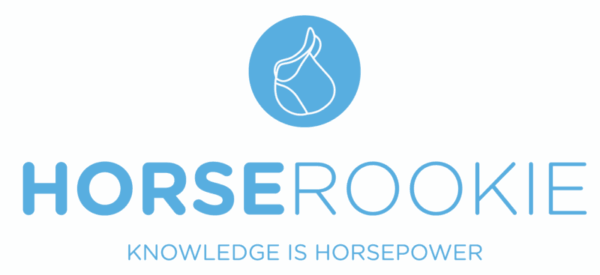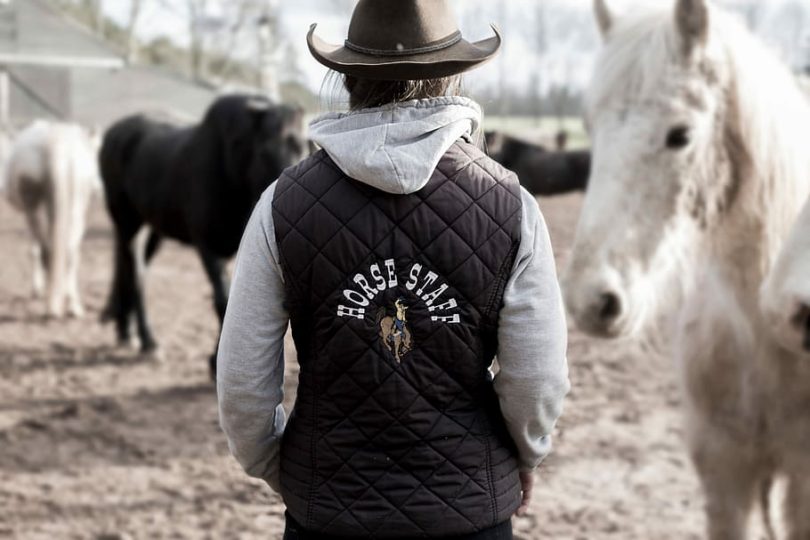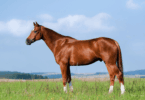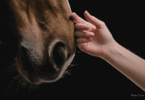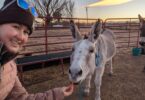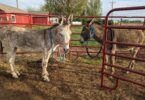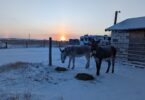Many trainers are good — few are great
In my younger riding years, I spent a lot of time in the hunter-jumper circuit, only because it was the most popular discipline in my region. My first jumping lesson was on a black Shetland pony named Spock. At seven years old, I was still relatively fearless around horses.
I did as my trainer said: I rounded the corner at a trot towards the jumps along the long side of the rail, sat forward a little bit, and let my horse do the rest. Well, the horse did his part by stopping abruptly; and I flew over his head. Many of you who have ridden ponies can empathize. To my credit, I hopped back on and repeated the same process. Not surprisingly the results were the same: I flew right over his head again.
This is the summary of my lessons from ages six to thirteen.
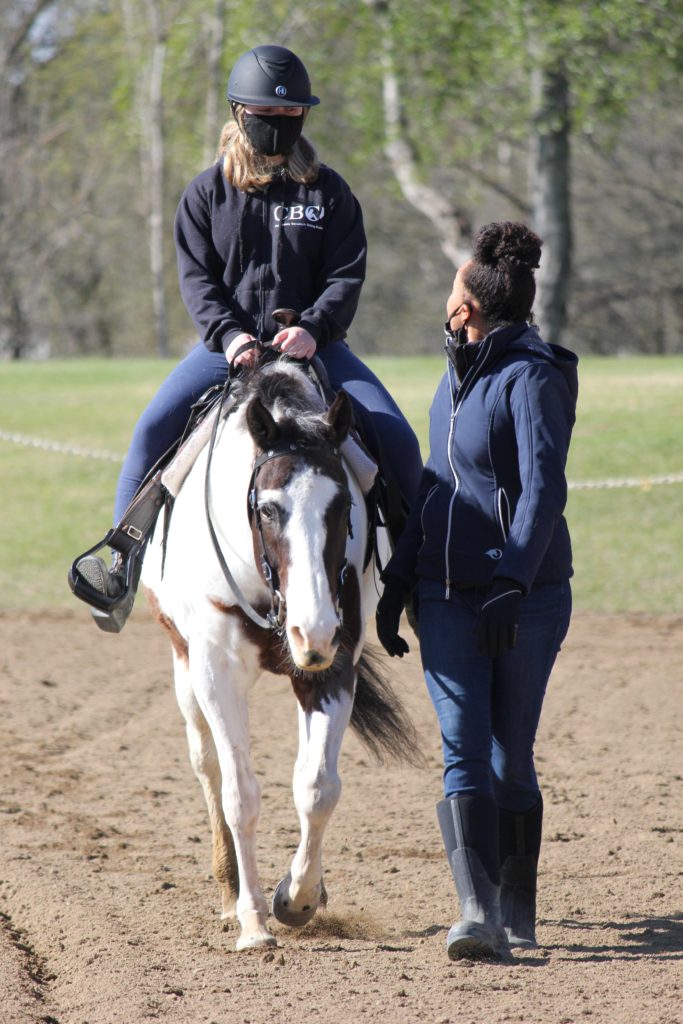
Photo Credit: Brittney Chambers
Trial and error, trainers who told me to just get back on, and maybe not do that thing that I did to fall off in the first place.
I swallowed my fear and got back on. Week after week, I would show up for lessons with horses I didn’t understand and trainers who challenged me to maneuver them. I would have breakthroughs here and there, where I figured out what exactly my trainer was asking me to do. I learned how to be persistent, and the victories that came were from hard work and learning from mistakes. Lots of mistakes.
I’m not all that coordinated naturally. I was a book-smart kid, but connecting my body to what I was trying to accomplish in my mind took much more effort than studying ever did. In my show circuit, it seemed that every trainer I learned from at some point or another would get frustrated and explode in a yelling and exaggerated-hand-gesture fit, either trying to explain to me what was going on or just from general irritation.
As much as I tried to figure out what exactly I was doing wrong, I would inevitably find myself in a sticky situation sooner or later.
Around age twelve, I switched from a training program in a show park to a barn that practiced a variety of English disciplines, but still with the intent of learning more for the show ring. I schooled under a short brunette woman who was clearly passionate about riding. She too, had a habit of exploding like other trainers in her discipline. I don’t blame her, I’m not a natural when it comes to horses. All I knew had been hard-learned through repetition, trial and error.
Every few weekends, she would be unavailable for my lessons and pass me on to another trainer, Abby.
Great may seem strange (at first)
Abby did things that were weird, like spend a lot of time at a walk and trot fine-tuning my posture and seat through different exercises. As opposed to all previous trainers, who just tried to get me to force the horse to do something, Abby focused on my horsemanship.
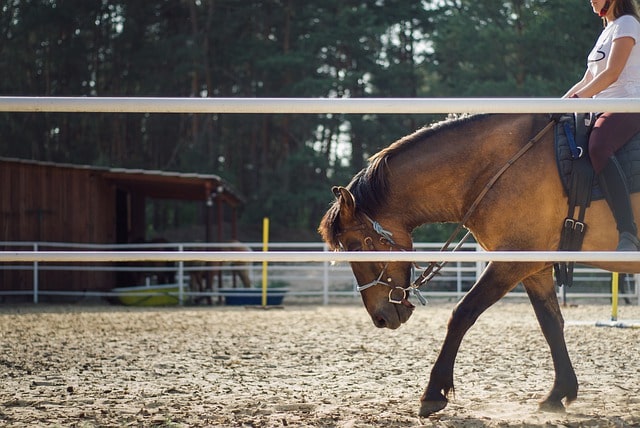
Photo Credit: Pixabay
She wasn’t fixated on my natural abilities — which shows I’d competed in or what I could make a horse do. She was looking at my attitude, my approach, and how that translated in my body and affected the horses.
For the first time in my experiences horseback riding, I learned to ask my horse what was going on and listen for his response.
By some stroke of divine fortune, I had stumbled upon a trainer who was kind, not just to the horses, but to me as well. She had incredible patience, and took the time to explain to me thoroughly how my body and mind affected the horse’s behavior.
I didn’t become a great rider overnight. But Abby helped me connect the dots from my thoughts and emotions to my body in a productive way that the horse understood.
She continued to surprise me with her unusual training methods. Some days, I would show up to the barn and she would inform me that I didn’t get a bridle during that day’s lesson. The whole lesson took place in the round pen, and I had no control over the horse’s mouth.
Other days, I’d show up for a jumping lesson, and she told me I didn’t get a saddle that day. She was never afraid of challenging me, and she gave me space to work things out on my own. Neither did she expect me to have all the answers.
Listen to the horse, and he will listen to you
All her instruction led back to “attunement” to the horse, kindness to the horse, and acting in the horse’s best interest. I absorbed this new philosophy of horsemanship more quickly than any other technique I’d encountered (especially the “just kick the horse until he does it” methodology).
The horses reflected her training methods clearly. She had more even-tempered, sweet horses than I had ever encountered at the show barns.
Even after a few years of riding with her and fine-tuning my seat, posture, and connecting with the horses I rode, I never re-entered the show ring. The victories that I experienced through understanding how to communicate with my horse partners were greater than any feeling I got from ribbons and moving up classes.
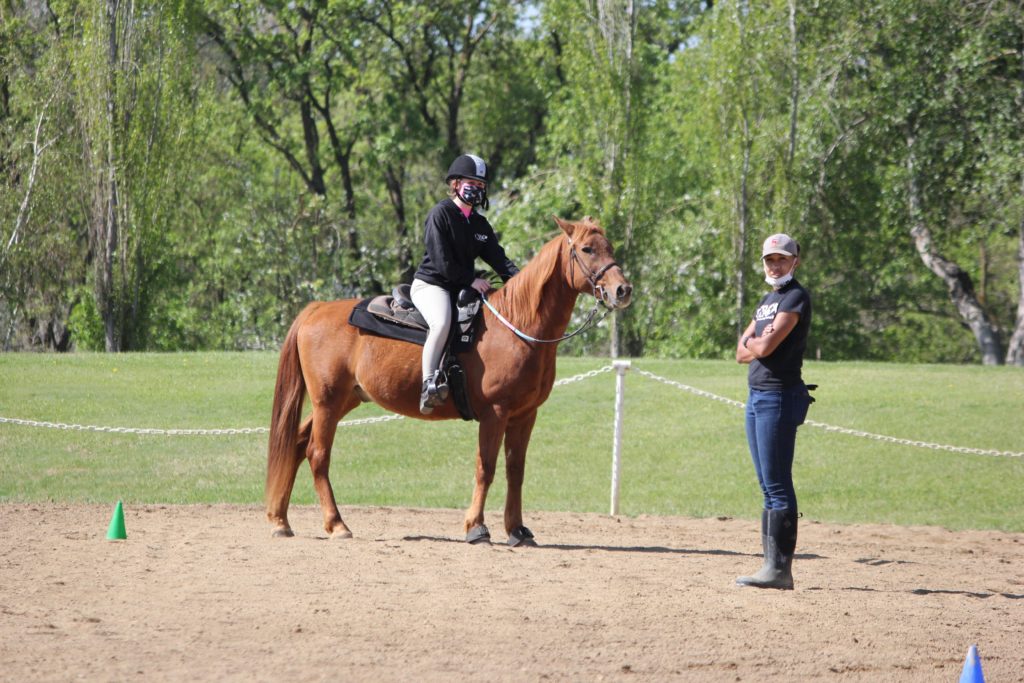
Photo Credit: Brittney Chambers
Don’t get me wrong, I would not take back any of those years of training. I met so many horses that taught me about the nuances of personality that vary from horse to horse.
But only one trainer taught me how to set my horse up for success and have a wonderful riding experience free from fear.
Because of what Abby taught me, I can now continue to learn on my own. I know how to listen to horses and develop as a rider and trainer through an attitude of kindness and humility. I can weed out the “helpful” equestrian advice about inflicting force and resistance.
Out of a whole lot of fine trainers, it really only takes one delightful one to change your entire experience. Thank you, Abby, for being the one who made all the difference.
Frequently Asked Questions
How can you help improve your horse trainer?
The best way to help improve your horse trainer is to communicate! Be open with what you’re looking for, what you need, and any concerns you have. If you don’t understand something make sure to ask! If your trainer doesn’t know you’re struggling with something, then they can’t adjust their training style or learn new techniques.
You should also be sure to actually put some of your own work into your sessions. It may seem like trainers are miracle workers at times, but good training comes through experience. If you plan on just sitting there and waiting for them to wave a magic wand, you’re going to be disappointed. Have a conversation with your trainer, make an honest attempt to follow through, and give them honest feedback.
What makes a good horse trainer?
A good horse trainer should first and foremost be good at listening. It can be difficult for some people, especially those who have worked in a field for a while and feel like they’ve “seen it all,” but every single horse and rider pair is unique! A good trainer will know their strengths and weaknesses and not go into a job assuming they already know the solution. Paying attention and really hearing what the client is saying can help them reach goals much faster.
A good trainer should also be flexible. Since each rider and each horse is their own unique entity, they need to be treated that way! One person may need more gentle encouragement, while someone else prefers a trainer that will really get after them. The trainer should be able to read client cues and change their technique to best fit the student.
How can you tell if a horse trainer is bad?
One red flag that your horse trainer is bad is if you generally FEEL badly after a session. Everyone has good days and bad days, so you shouldn’t expect every single time you ride to be a magical breakthrough, but if you consistently feel depressed, humiliated, frustrated, or you want to give it up, then you have the wrong trainer.
You also should feel like you are making progress and are not wallowing in the same problem week after week. Don’t get stuck with someone who comes highly recommended either, because you need to find someone who listens to you and works with you! Just because a friend absolutely loved their trainer does not mean they’re a good match for you.
What should I ask a horse trainer?
If you’re looking for a new trainer (or your first trainer) you should have some questions in mind. Think of it like an interview, because it is! You’re hiring a professional for a service and that service is to improve your riding skills.
You should ask questions about the trainer’s experience – how long they’ve ridden, how long they’ve been teaching others, and what sort of show experience they have. You also should ask questions about the lesson program, like how long the lessons are, what they cost, if they’re group or private, and if they own the horses, use someone else’s, or if you can use your own horse.
You may want to find a trainer that can travel to you or even a trainer that can do training rides on your horse if needed. It is also important in this day and age, to check if your trainer has insurance.
How do I leave my horse trainer?
If you feel like it’s time to leave your horse trainer you should be professional. Whether you’re moving, no longer feel they’re a good fit, or whatever other reason you have, don’t burn bridges. It can be tempting to ghost someone, or yell and storm out, but when tempers have cooled you can’t change your behavior. Horse communities can be pretty tight-knit and you don’t want a bad reputation.
The only person you can control is yourself, so do yourself a favor and be the bigger person!
When you are finally ready to break the news be honest, but don’t try to make it all their fault (even if it is). Use “I” statements and explain the way you feel or how your situation means you need to leave. Give them some notice, because training is their job! Stay calm, be polite, and be happy you stayed graceful.
P.S. Enjoy this article? Trot on over to:
- Myth Busters: Do Horses Actually Like Being Ridden?
- 3 Reasons horseback riding is (really) fun
- How to Host a Horseback Riding Clinic Step by Step
- 99 Fun & Incredible Horse Facts for Kids
- Horse Jumping Glossary for Beginners (With Videos)
- Pointers for Jumping Crossrails with Confidence
